FEATURED NEWS | By Michelaina Johnson
Five Reasons Why Women Are Taking Over Education
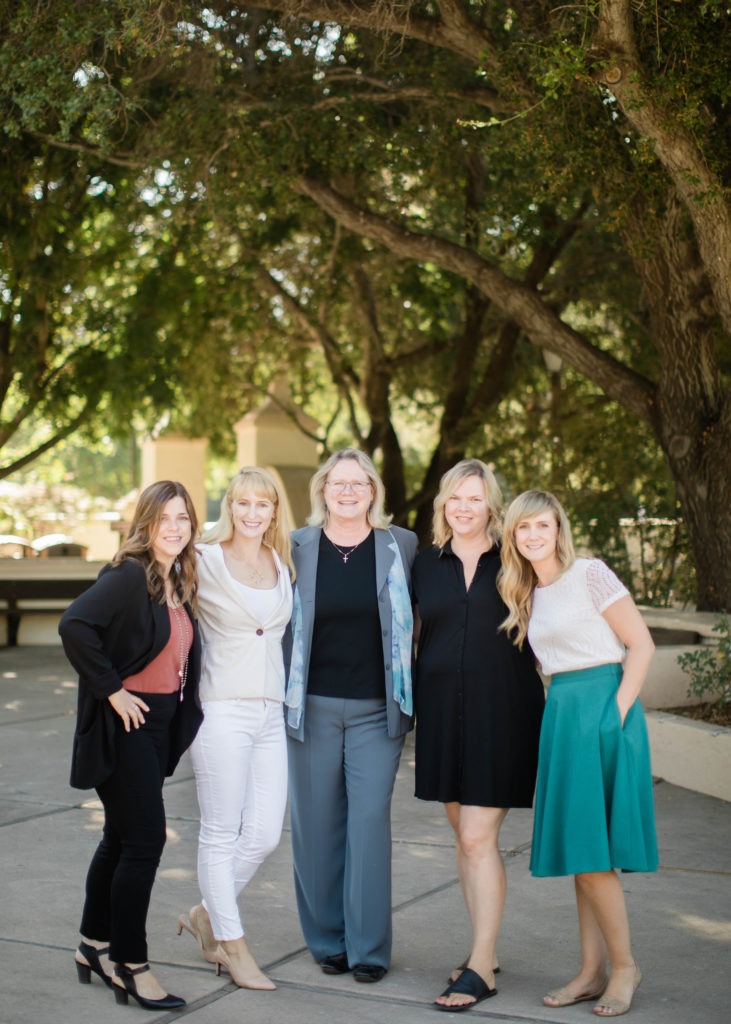
Ojai’s five female heads of school: Jodi Grass, Tiffany Morse, Nancy O’Sullivan, Blossom Pidduck and Portia Johnson
If you attended a public or private school, think about your teachers in grades kindergarten through 12th grade. Chances are the majority of them were female. Among public and private schools, women make up 76 percent and 74 percent of teachers, respectively. However, as you look further up the ladder, the percentage of women in power declines steeply, according to the study “Benchmarking Women’s Leadership in the United States” from the Colorado Women’s College at the University of Denver.
The highest levels of leadership in public and private school systems — Superintendent and Head of School, respectively – are predominantly male. Nationally only about 24 percent of women are superintendents, while only one-third of independent schools have females serving in head of school positions, according to the Colorado Women’s College study and a further study by social scientist Kathleen Gallagher. The obstacles include gender-based discrimination, motherhood and family obligations, and an absence of professional networks.
In this national context, the Ojai Valley is unusual. Women lead the vast majority of schools in the region, meaning that they not only serve as trailblazing role models and set the conversations in the arena of local education, but they also greatly influence Ojai’s economy (education is the largest employer of Ojai residents at 27 percent, according to data from the Employment Development Department).
Portia Johnson of Besant Hill School, Blossom Pidduck of The Thacher School, Jodi Grass of Oak Grove School, Nancy O’Sullivan of Villanova Preparatory School, and Dr. Tiffany Morse of the Ojai Unified School District (OUSD) personify the exceptional character; leadership; community-oriented compassion; and long-range vision of how their investment of time and energy in young people produces fruit over a lifetime.
The following interviews illustrate why they do what they do, and the impact of their schools on the Ojai Valley.
Jodi Grass
Jodi Grass celebrates her 14th year with Oak Grove School this Fall. She started as the Director of Development in 2005 and became Head of School in 2017. The current position brings together her deep interest in the philosophy of the school, passion for youth and parent development and diverse professional experience working with nonprofits and educational organizations in Los Angeles, Santa Barbara and Ventura counties.
Ojai Quarterly: How does your background inform your role as the Head of Oak Grove School?
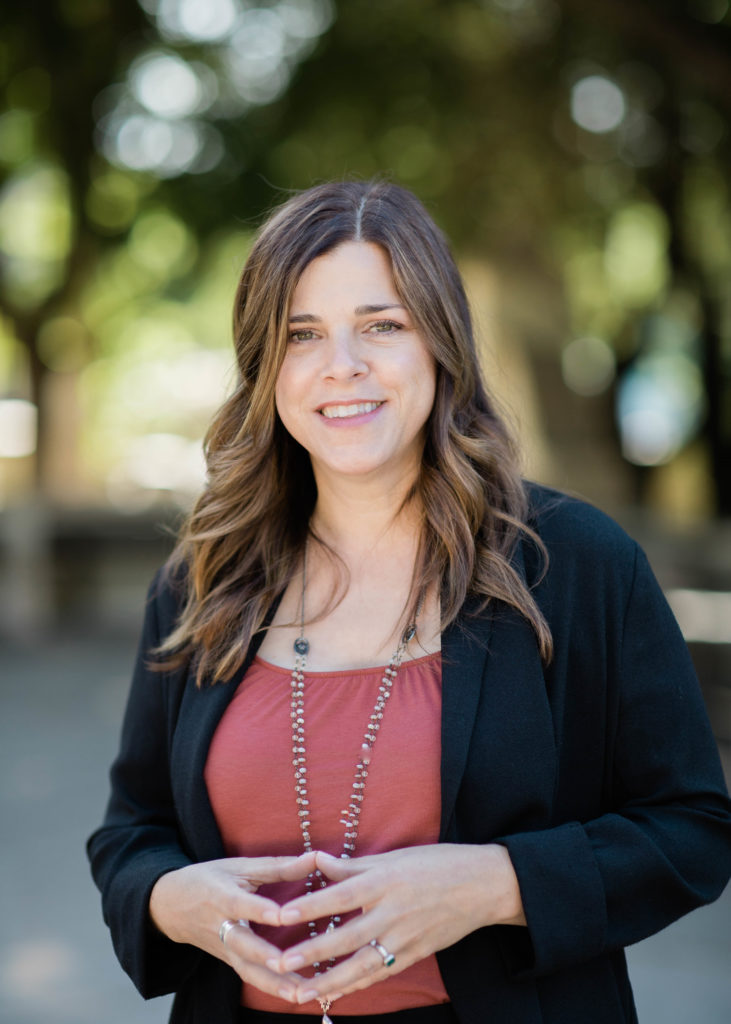
Oak Grove School’s Jodi Grass
Jodi Grass: On a personal level, what most informs my position as Head of School is my deep affection for people, both children and adults. Admittedly, I am a huge parenting geek. I have an insatiable desire to learn everything available on the physical, emotional, social, cognitive, and intellectual development of children. It also supports the lens through which I view and engage with students and is the resource I draw on for cultivating a vibrant and highly engaging school.
OQ: What do you see as education’s role in helping students thrive in a rapidly changing world?
JG: As the world moves away from specialization and industrialized skills, there is a growing demand for the ability to synthesize information. Current employers and world leaders are looking for people who can solve complex problems with an ability to negotiate on a global level, often through conflicting cultural, social and political ideologies.
Oak Grove is not just concerned with developing future employees. We are concerned with our future world citizens. J. Krishnamurti, (the founder of Oak Grove), said, “A school, through its students, should bring a blessing to the world.” I cannot think of anything more important than that.
OQ: You have 26 years of experience in development and youth education with nonprofits and private schools, including the Morgan Foundation, Girls Inc. and Planned Parenthood. Drawing on this strong background, how do you approach the stereotype that private schools are financially inaccessible to most students from socioeconomically disadvantaged backgrounds, and how does Oak Grove contend with this perception?
JG: A really important clarifying point is that independent schools don’t receive money from federal, state and local governments. Although our teachers are highly educated and fully credentialed, as they are elsewhere, private school teachers are often paid less than public school teachers, and that’s definitely the case at Oak Grove School. We don’t have a comprehensive retirement package like the public schools do. Oak Grove’s income is limited to tuition and donations. There’s no other source, so we have to be more conservative in our annual expenses.
About 40 percent of our families receive some amount of financial aid. Currently, about 14 percent of Oak Grove families would qualify for free or reduced lunch if they were at a public school, so we do a pretty good job having some financial diversity in our school.
OQ: Today’s youth are inheriting a planet in crisis, along with many tools to safeguard the health of our planet — such as national environmental regulations and international agreements like the 2015 Paris Climate Agreement. How does Oak Grove’s environmental curriculum help students understand how our choices affect the globe, and how can they be active agents in solving the climate crisis?
JG: Our relationship to nature is a founding principle. This is why most of our campus is not landscaped. We have explicit parts of our campus that we use for education like our Lost Meadow where trees fall and lots of animals live there so that we can study ecosystems.
Then, of course, we teach students about energy use, consumerism, what we do with our waste, and the environmental impacts of landfills, plastics, and single-use items. We don’t have trash cans in our lunch area to impart the wilderness concept ‘Pack in, pack out.’ There’s an awareness from the parents about what comes back home. At school we ask our families to pack in, pack out. We compost everyday through our vegetarian hot lunch program, for which we focus on sourcing locally.
Portia Johnson
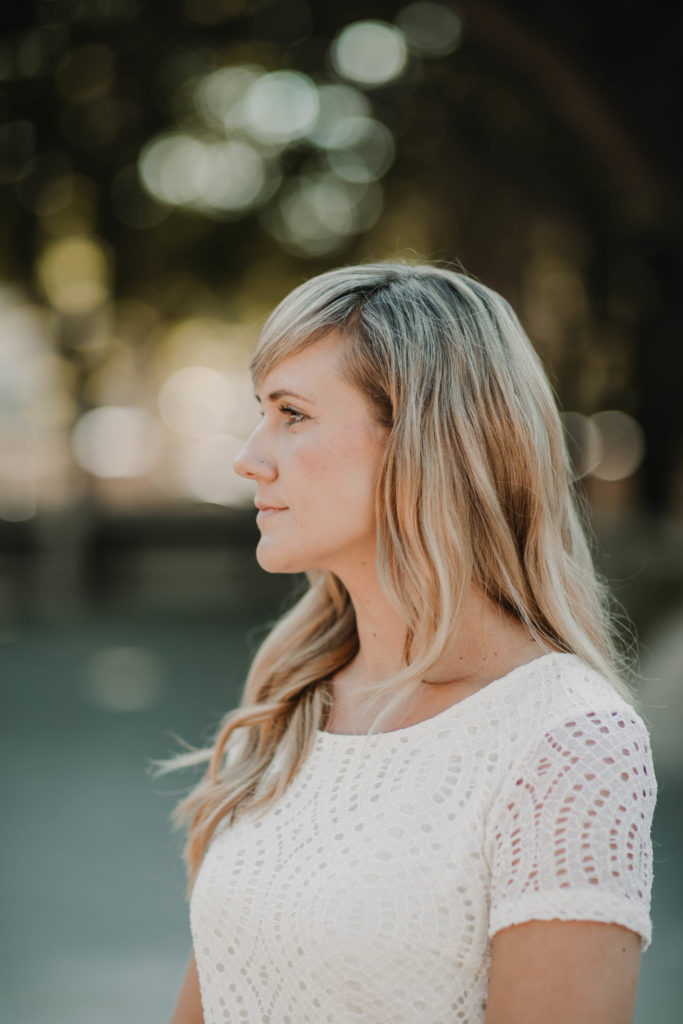 Portia Johnson has been part of the Besant Hill family for 18 years. She became the Head of School in July 2019. Additionally, Portia serves as the Secretary on the Board of Trustees for the Ojai Art Center. She is passionate about teaching creativity and inspiring students, as well as giving back to the Ojai community.
Portia Johnson has been part of the Besant Hill family for 18 years. She became the Head of School in July 2019. Additionally, Portia serves as the Secretary on the Board of Trustees for the Ojai Art Center. She is passionate about teaching creativity and inspiring students, as well as giving back to the Ojai community.
Ojai Quarterly: How does your background inform your role as the new Head of Besant Hill School?
Portia Johnson: Our school motto is Aún aprendo, which means “I am still learning.” That very much informs me as a person and my progression, first as a student here and then as a member of the faculty and administration. I began as an English teacher; then, for seven years, I was the Director of Teaching and Learning; and now I am Head of School. So that pretty much sums up the ethos that I’m still learning and forever challenging myself.
OQ: What is education’s role in helping students thrive in a rapidly changing world?
PJ: Our school is intentionally small, but we’re also intentionally diverse. We have 100 students from 22 different countries. In terms of a globalized world, I think we hit that one on the head. They get a really deep understanding of how culturally different places around the world are.
The key to educating students in our new world is to teach them how to think. It’s so impossible to know what kind of world they’re going to encounter everyday, but we can teach them to be critical thinkers who are inspired to continue learning so that, when they come across new things, they can evaluate them and be able to know how to overcome the problems that we can’t even anticipate.
OQ: You attended Besant Hill School from 1996 to 2000 and then returned to join the faculty, during which time you also earned an M.Ed. in Educational Leadership from the University of New England. With 14 years of perspective to reflect on, how do you feel that Besant Hill has molded your identity, and how do you feel that you have shaped this institution?
PJ: You know, I am still surprised at how astute I was as an eighth grader at Matilija Junior High School. There was a lot of social pressure there that was distracting me from learning, so I looked around at all the schools in the Ojai Valley. When I came here (to Besant Hill) for a tour, I was like, “Mom, I’m going here.” It’s the best decision I’ve ever made. It literally shaped my whole life.
Besant Hill is such a safe place for kids to try things, and that was the same thing when I was a student here. There are so many opportunities for students to study what they are passionate about academically and artwise. We are expanding our Aún aprendo Initiative, which offers an amazing and unique experience for the students to reflect on their learning and the mastery of different concepts through e-portfolios. We also invite professionals to come in and work with the kids through mastery classes where they learn from people who’ve made it their goal to be lifelong learners. I want to continue to expand that program.
OQ: Tell me about the day in the life of a boarding student at Besant Hill.
PJ: Sure! Breakfast is between 7 and 7:45 a.m. Classes go from 8 a.m. to 3 p.m. We have regular classes, but then we also have assembly three times a week. We have our human development program, called Class Connections, which meets once a week. We have clubs, advisory, and other important co-curricular programs. Then, from 3:15 to 4:15 p.m., they have either sports or fitness, followed by a little bit of downtime. Dinner goes from 5:30 to 6:30 p.m. From 6:30 to 7 p.m., we have crew jobs where the students give back to their housing community, and they all work together to keep their spaces clean. From 7 to 9 p.m., there is study hall and then free time from 9 to 10 p.m. They’re back in their dorms by 10 p.m., getting ready for bed and brushing their teeth (hopefully! Just kidding!). It’s a busy day!
OQ: What is it like for teachers and staff to manage the lives of 100 students every day? Do you sense a distinction between personal life and work or does it blend together?
PJ: Do our lives and our work bleed together? 100 percent! It is really important to establish boundaries and get off the hill. I think the key thing to really enjoying living in a boarding community is wanting to share your passions with young people because it doesn’t just happen in the classroom. If you really love surfing on the weekends, then you can take the kids surfing, and they’re going to love it, and you’re going to love it.
I really like bad movies, so on my duty weekends I like to have bad movie night where we all watch a bad movie in the theater and laugh at how terrible it is.
OQ: What’s your favorite bad movie?
PJ: Definitely “Troll 2.”
Dr. Tiffany Morse
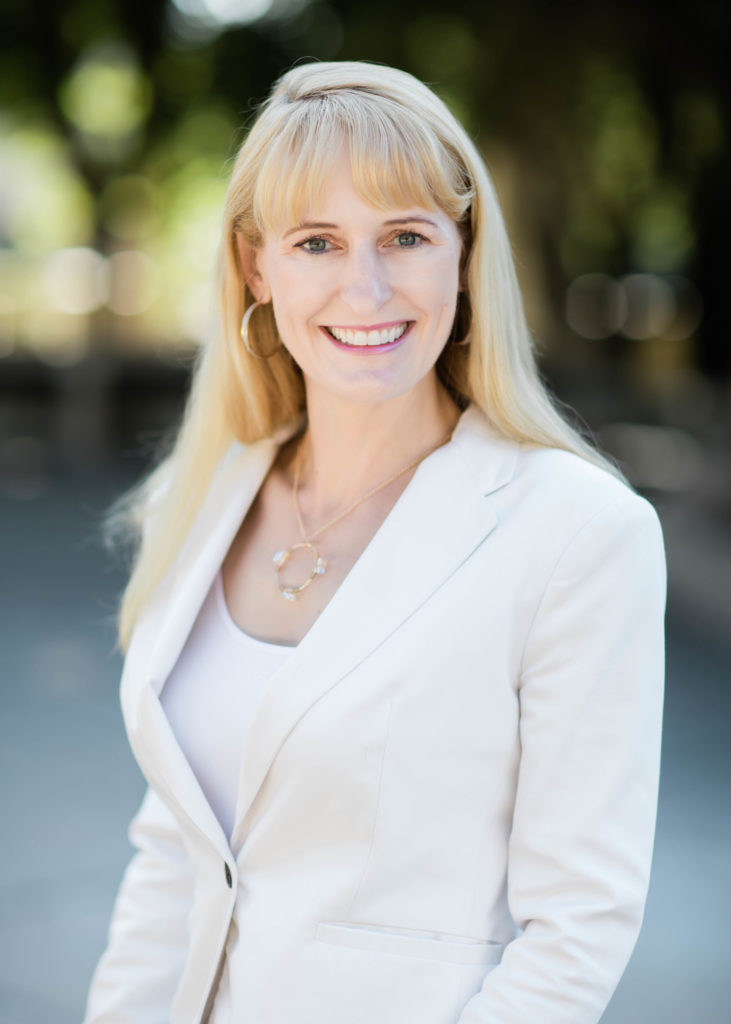
Ojai Unified School District’s Dr. Tiffany Morse
Before becoming the Ojai Unified School District’s new superintendent in July 2019 (the second female leader in its history), Dr. Tiffany Morse served as the Executive Director of Career Education of the Ventura County Office of Education, where she helped to design innovative technical and mechanical curriculum for students. She aspires to live in a world where no one says, “I don’t get math!”
Ojai Quarterly: How does your background inform your role as the new Superintendent of the OUSD?
Dr. Tiffany Morse: I come from a non-traditional background for a public school superintendent. I went from being a middle school math, science and technology teacher to working at the California State Department of Education. That work on policy really helped me see the big picture; how the system influences the work we do; and how the system can be navigated to do good work for kids.
OQ: What do you see as education’s role in helping students thrive in a rapidly changing world?
TM: This is a question that educators should be thinking about all the time. We have to have a holistic view. We have to teach them to be bold problem solvers and how to communicate with others. And we have to stop trying to make obsolete things better.
OQ: Your kids are about my age, right (mid-20s)? What advice would you give them?
TM: It’s interesting because my son was not your typical straight-A, “I’m going to go straight to a four-year college, I know exactly what I’m going to do [student].” My advice was figure out what you like to do, and, within that context, learn how to solve problems, communicate, and learn through experiences that will help you develop skills to move on. Because, if you don’t know what you like doing, what’s the point in getting a four-year degree in something?
He was taking English classes, math classes and the regular college transfer classes, but there was no hook for him to continue to take those classes and to thrive without the purpose of I know what I want to do before I graduate from college. He’s actually majoring in Sound Engineering now.
OQ: I’m very happy for him, but not all students in the public school system have the privilege of having parents who can tell them, “Pursue your passion and we’re going to support you in a capacity that enables you to do that.” How did you feel that school districts can provide students with the education base that will enable them to explore their passion and to know what careers are available, especially as the STEM (Science, Technology, Engineering, and Math) world is growing?
TM: By your passion, I don’t mean something that doesn’t make money. I would reframe what I said and offer, ‘What are you good at and what do you like to do?’ You may not know what your exact passion is, or your passion might be art, but you’re going to do something else in your day job. I think a lot of our work in elementary school and middle schools is to create exploratory experiences for kids. One of the things that we’re going to be doing next year is a program called Community Classroom where we bring the community into elementary schools and teach interest-based classes once a month. So, as a middle or elementary school kid, I get an opportunity to take a baking class, a cooking class, a Taekwondo class or a conversational Spanish class.
OQ: The OUSD offers one of the lowest starting salaries for credentialed teachers in Ventura County. How do you plan to recruit and retain top talent given the salary shortcomings and ensure that current OUSD educators are able to remain active leaders in the Ojai Valley given the rising cost of living?
TM: Starting salary is an issue. I will say, though, that I am not just worried about teachers. I am equally as worried about our classified staff. It is critical that we have good substitutes, good bus drivers, good nutrition service workers, and good custodians. Our schools don’t run without our classified staff, yet they are more likely to make closer to minimum wage than our teachers. Our classified staff just got a significant raise, more than two percent, so we are working on it.
In general, creating a culture where teachers and classified staff are supported and developing their capacity is important. I think people will come to a place where they are valued as employees and have a capacity for growth.
Nancy O’Sullivan
Nancy O’Sullivan has 27 years of experience working in Catholic education and administration. She has held various leadership positions at Bishop Montgomery High School, Notre Dame Academy, Santa Clara High School, and Holy Family High School, to name a few.
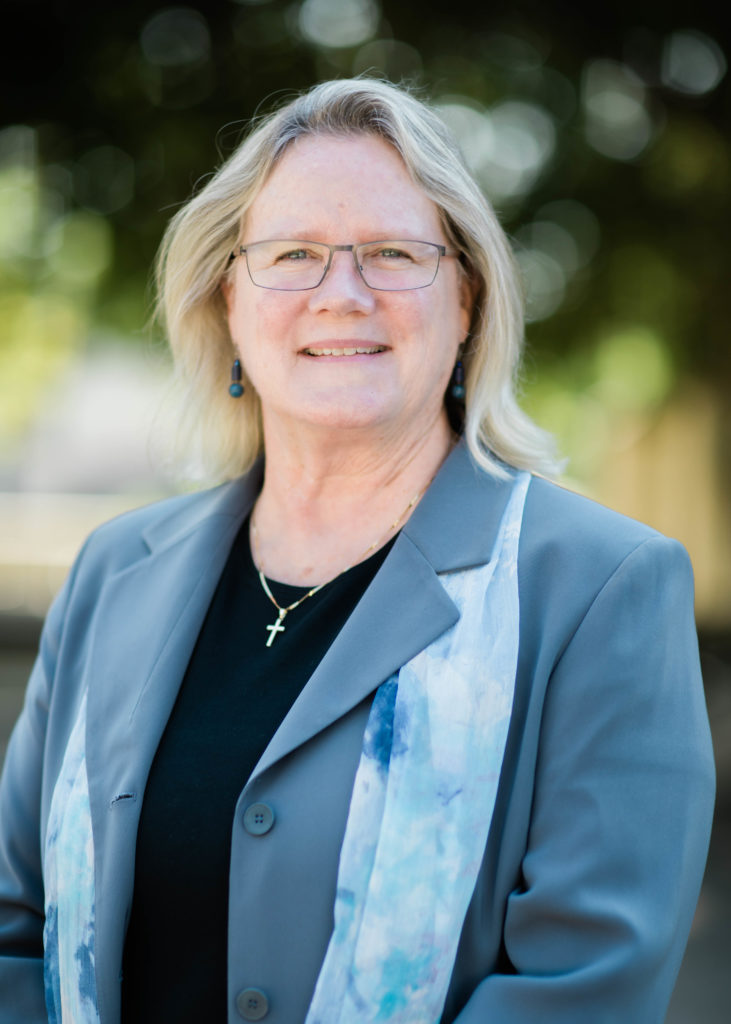
Villanova’s Nancy O’Sullivan
Ojai Quarterly: How does your background inform your role as the Head of Villanova Preparatory School?
NO’S: Before I came to Villanova, I was the principal at Holy Family High School in Glendale, an all-girls Catholic High School. Because it was a small Catholic school, I ended up wearing a lot of hats. One of the hats that I really dabbled in was development and admissions. In that particular community, I found a way to engage our alumni and supporters in a way that financially assisted the school, which brought me to Villanova four years ago as the Assistant Head of School. I was responsible for discipline and overseeing activities. About halfway through the 2017-2018 school year, the Headmaster at the time said she was going to retire, so I applied for the position and was fortunate to become the Headmaster.
For me, this is not a job. I don’t get here early and stay late because it’s a job. It’s my ministry, and it’s a great place to work.
OQ: Since Villanova is based in Catholic education and the Augustinian tradition, does a student have to be Catholic to feel comfortable at the school?
NO’S: We have faculty members and students who are not Catholic. The way we look at it is everyone has a spirituality within them. We have Mass at least twice a month, and everyone attends. I think it’s a time for people to work on their own spirituality, whether they’re into meditation or whatever religion they are. We want to create that environment.
There are many families who have said, “We’re not Catholic, but we want to come to this school,” because of our morals and ethics and the education we bring to the students. We can educate them in the Catholic faith. When you get to be a senior, you’re going to take Religion 12. In that class, you are going to learn primarily about vocations and world religions. I think bringing in that balance helps a student to feel comfortable.
OQ: Teachers’ duties often extend beyond the classroom. Many educators serve multiple roles in students’ lives, including mentors, counselors, friends, and even surrogate parents, while being parents and active participants in their own communities. How do you, as Head of School, foster a work environment that supports teachers in the classroom and in their personal lives?
NO’S: The thing that sets us apart from the other boarding schools is that we have resident staff who come on at 3 p.m. and they go until lights out. At most other schools, teachers teach; maybe coach; and are also responsible for the dorm. I understand why other schools do it, but, I’m sorry, I am tired by then. Instead, we have a fresh group. They are the dorm parents and really get to know the students in another way.
When we talked about all the things that teachers have to do in education, it’s a lot. They are working hard to prepare their lessons; making sure they’re up-to-date on current curriculum; putting all those assessments in an online grading system. And then they have their own families. We try and give them enough time to get the things they need to do done. For example, we make sure our teachers have a second prep period. As Head of School, I try and make sure that, when a family has an issue, we support them because we are also a family here and we love them.
OQ: So, last question, what do you see as education’s role in helping students thrive in a rapidly changing world?
NO’S: We have to change with the world, and sometimes education is the last to change. If we teach responsibility with that technology, it can be an incredible tool. I didn’t grow up with this kind of technology, but they are and it’s moving faster and faster.
Mrs. Cotti is our education technologist. She teaches all of our teachers and staff about upcoming apps. So, instead of just handing out a piece of paper with ten questions and saying, ‘Okay, students, fill out the quiz and then turn it back in,’ she’ll find an online tool like Quizlet to make that assessment more fun.
Blossom Pidduck
Blossom Pidduck assumed the position as Head of The Thacher School in 2018, becoming the first alumna to lead the school. She has been a vital part of the institution for 16 years, serving as Assistant Director of Admissions, English Department Chair, and Dean of Faculty, to name a few of her roles.
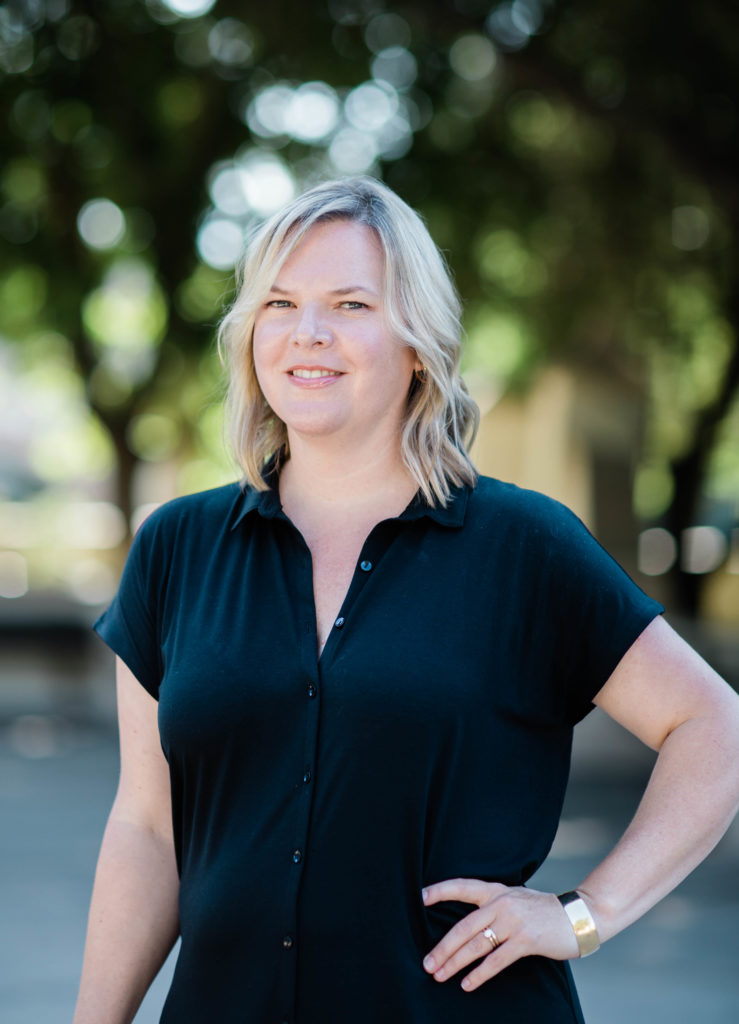
Thacher’s Blossom Pidduck
Ojai Quarterly: How does your background inform your role as Head of The Thacher School?
Blossom Pidduck: I knew from a young age that I wanted to do the work of those adults whom I admired most — my teachers. Many of them were my mentors and teachers when I was a student at Thacher. They modeled a passion for learning and growth and a commitment to shared, transcendent values that became my definition of a life of purpose.
I’ve been fortunate to have experiences as a teacher, not only in independent schools, but also in public and charter schools, as well as in a host of different administrative capacities. In all of those places and roles, my focus has been teaching and learning, rooted in relationships and supporting young people.
OQ: What do you see as education’s role in helping students thrive in this rapidly changing world?
BP: Kids have incredible opportunities in today’s world and a lot to contend with. A high school education in 2019 is less about access to information and more about opportunities to engage — with information, with ideas, with people, with unanswered questions and problems, and with themselves. Learning to learn, to understand themselves and others, to connect with this planet, to critically assess information, to communicate across differences, to engage their creativity, to seek out not simply answers, but also problems — these are the great opportunities of education in what some might call an uncertain environment.
OQ: You attended Thacher between 1989 and 1992 and later married your classmate, Brian Pidduck, who is now a science teacher and Director of the Outdoor Program at Thacher, and you two have twin daughters. Nearly your whole life revolves around Thacher and its staff and students. In this context, what does family and community at Thacher look like, and how do you approach those personal-professional relationship structures as the Head of School?
BP: Thacher is a community rooted in shared values, committed to educating a diverse — in all senses of the word — student body in what our founder called “the art of living for their own greatest good and that of their fellow citizens.” My husband, Brian, and our daughters and I host the community at our house most Saturday nights for something we call Open House — cookies in the kitchen, board games in the dining room, ping pong on the patio, impromptu dances in the living room and movies in the TV room. At times there will be 200-plus people in our house, mostly teenagers. Of course there are times for everyone when it is hard to draw the boundaries of work and school and private life. I don’t try to model for the students or my colleagues a “doing it all” approach. Instead, I attempt to highlight how much support, patience (with ourselves and others), and gentleness (with ourselves and others) it takes to make this life work. The benefits are tremendous for all of us.
OQ: Thacher is known for its academic and educational excellence as one of the top 10 best boarding schools in the U.S. Yet, there are some local residents who view the school as elitist and separated from the Ojai community. What is Thacher’s relationship with the Ojai Valley, and how do you imbue public service into student life?
BP: Leadership, at Thacher, is the act of taking responsibility and it is expected of everyone. While we don’t require community service, the majority of our students engage in service to the Ojai community in some capacity — from the Humane Society to the Head Start programs. Our students, staff, and faculty engage in local issues and take advantage of the many wonderful community programs in the valley oriented towards positive public discourse on issues of relevance to the community.
As part of our leadership program, Thacher has partnered with Nordhoff High School to support a leadership and character development course for Nordhoff students that draws on the expertise and experience of both institutions with the ultimate goal of bringing students from our two schools together to collaborate in leadership learning. It has never been more the case that the challenges outside the Thacher School gate are Thacher’s challenges; we do not seek to separate ourselves, but to contribute our passion, our commitment and our resources to addressing those challenges as an essential aspect of our educational model. It’s our job to get out into the broader community, share ourselves, and build connection, and that’s what we’re attempting to do. ≈OQ≈


Leave A Comment